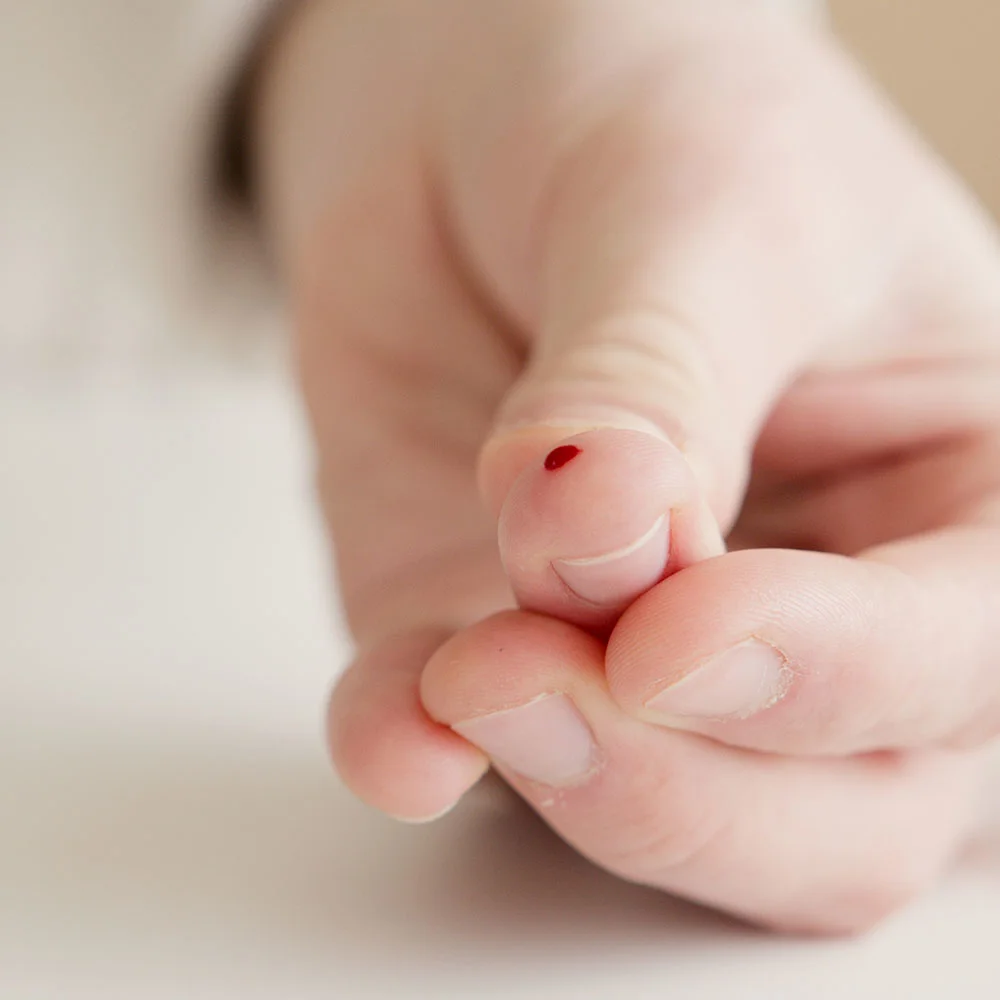Here's what we'll cover
Here's what we'll cover
Here's what we'll cover
The term “hypoglycemia” refers to a state in which blood sugar levels have fallen below the normal range. Let’s break the word apart. “Hypo-“ means there is less of something, “-glyc-” comes from glucose (the measured form of sugar in the blood), and “-emia” refers to something that is in the blood. Hypoglycemia is usually talked about in the context of diabetes, but a few other things can cause it as well. We’ll get to those later.
A little bit about blood sugar and blood sugar regulation:
We all have sugar flowing through our blood. That may sound strange, but having sugar in the blood is essential to maintaining life. The form of sugar in the blood is called glucose, so the terms “blood sugar levels” and “blood glucose levels” are often used interchangeably.
Glucose is one of the nutrients our bodies use for energy. Our bodies can also break down fats and proteins for energy, but breaking down glucose is the faster, preferred method. Our bodies get glucose from the things we eat – but that doesn’t mean you have to eat pure sugar to maintain your glucose levels. Complex carbohydrates are long chains of glucose molecules (they are also called polysaccharides). Whenever you eat carbohydrates (carbs), your body breaks them down into many individual pieces of glucose that enter the bloodstream.
Having low blood sugar (hypoglycemia, the topic we are covering here) and having high blood sugar (hyperglycemia) can both be dangerous. Therefore, our bodies are designed to do keep glucose levels in check. The normal range for blood sugar that our bodies strive for is 70-99 mg/dL when fasting (not eating or drinking for at least eight hours). These levels are defined based on fasting because blood sugar levels go up right after eating (and would, therefore, be difficult to interpret if checked right after a meal).
As mentioned, glucose is used by cells for energy. However, when there is excess glucose in the blood, your body tries to store it for later use. To accomplish this, extra glucose gets taken up by liver cells and muscle cells and is converted into a molecule called glycogen. Glycogen is the body’s storage form of glucose, and if glucose levels fall too low, glycogen can be reconverted into glucose to bring those levels up again.
Blood sugar is primarily regulated in the body by two hormones: glucagon and insulin. Glucagon is the hormone that helps raise blood sugar. When levels are low, glucagon gets released from alpha cells in the pancreas. It then acts on the liver, prompting the liver to turn glycogen back into glucose. Insulin, on the other hand, is the hormone that helps lower blood sugar. When levels are high, insulin gets released from beta cells in the pancreas. It then acts on fat, liver, and muscle cells, prompting them to take up glucose to either be used for energy or stored for later.
When something goes wrong with this whole process, you can be at risk for developing hypoglycemia. Hypoglycemia is when blood sugar that has fallen below the normal level, meaning a blood sugar of <70 mg/dL.
What are the causes of hypoglycemia?
Hypoglycemia most commonly occurs in people who have diabetes. This can be in both type 1 diabetes mellitus (T1DM) or type 2 diabetes mellitus (T2DM). However, it’s not actually diabetes that causes low blood glucose – it’s the treatment! People who have T1DM and T2DM have an issue with how their bodies make or respond to insulin, which causes their blood sugar levels to be too high. As a result, they may take insulin as a medication or may take other drugs that stimulate the pancreas to release more insulin. However, if they take too much insulin, too much of their other medicines, or haven’t eaten enough, hypoglycemia may result. Other factors that can cause people with diabetes to experience hypoglycemia are getting more physical activity than usual, drinking too much alcohol, or being sick.
The diabetes medications that are most often implicated in causing hypoglycemia are:
Insulin
Sulfonylureas (e.g., glimepiride/Amaryl, glipizide/Glucotrol, Glyburide/DiaBeta)
Meglitinides (e.g., repaglinide/Prandin)
When used in combination with sulfonylureas, metformin, SGLT2 inhibitors (e.g., canagliflozin/Invokana, empagliflozin/Jardiance), and thiazolidinediones (e.g., pioglitazone/Actos, rosiglitazone/Avandia) can also lead to hypoglycemia.
Less often, other medications can have a side effect of hypoglycemia. These include:
Anti-arrhythmic medications (e.g., cibenzoline, quinidine)
Antibiotics and medicines used against parasites (e.g., gatifloxacin, pentamidine, quinine, trimethoprim-sulfamethoxazole/Bactrim)
Beta-blockers (e.g., atenolol, propranolol)
Indomethacin
Certain medical conditions are also sometimes found to be the cause of hypoglycemia. Any disorder that leads to an increase in the amount of insulin produced by the body can cause hypoglycemic episodes. This includes having an insulinoma, which is an insulin-producing tumor, having a condition called nesidioblastosis, which is when the pancreas has more insulin-producing cells than normal or having congenital hyperinsulinism, which is an inherited form of high insulin. People who have severe kidney disease, severe liver disease, or those who drink alcohol in excess may also develop hypoglycemia. Lastly, prolonged fasting or starvation can lead to hypoglycemia when the body runs out of glycogen stores and is no longer able to maintain glucose levels. This would be rare, however.
What are the signs and symptoms of hypoglycemia?
The symptoms of hypoglycemia may be mild at first. However, if hypoglycemia is prolonged or worsens, it can rapidly become dangerous and even life-threatening. While many people with diabetes are often concerned about their blood sugar going too high, blood sugar that is too low may become even more of an emergency.
The initial symptoms of hypoglycemia include but are not limited to:
Dizziness
Fatigue
Headache
Irregular heartbeat or palpitations (fast heartbeat that feels like a fluttering)
Shakiness
Sweating
Symptoms of severe hypoglycemia include:
Changes in vision
Confusion
Slurring of words
Seizures
Loss of consciousness
Death
One worrisome condition that can occur in those who get episodes of hypoglycemia is called “hypoglycemia unawareness.” Hypoglycemia unawareness is a situation in which an individual becomes hypoglycemic, but they do not feel the typical symptoms associated with it.
Usually, when blood sugar levels drop, the body secretes glucagon and the stress hormone epinephrine (also known as adrenaline), which alerts you that something is wrong. However, some people do not get these warning signals, do not realize they are hypoglycemic, and therefore do not treat themselves—which can be very dangerous.
Hypoglycemia unawareness occurs most frequently in those who have frequent hypoglycemic episodes, people who have had diabetes for a long time, people who strictly control their blood sugar, or people with diabetic autonomic neuropathy, which is damage to certain nerves. One article estimates 40% of people with T1DM have hypoglycemia unawareness (Martín-Timón, 2015).
Since there are no symptoms, people with hypoglycemia unawareness should check their blood sugar more frequently or should use continuous glucose monitoring. According to the American Diabetes Association, it may be possible to reverse hypoglycemia unawareness by having a higher target blood sugar and avoiding hypoglycemic episodes for several weeks.
How is hypoglycemia treated?
It is crucial to recognize episodes of hypoglycemia and to treat them rapidly. Hypoglycemia may become an emergency that, without immediate intervention, leads to death. Therefore, treatment of hypoglycemia relies on anything that can effectively raise blood sugar in a short period.
People who are at risk of hypoglycemia, including those taking insulin or other hypoglycemia-inducing medications, should regularly check their blood sugar with a glucose monitor and should keep a sugary snack or beverage (e.g., fruit juice) on-hand at all times. At the first signs of hypoglycemia, they should consume this snack and then recheck their blood sugar to see if it has returned to the normal range.
Other things that can be kept on-hand include glucose tablets, glucose gel, and glucagon injections. Family members or other close friends should be trained on how to administer these interventions in the event of an emergency.
If hypoglycemia is severe or does not improve with treatment, call 9-1-1, as immediate medical attention is necessary.
What is reactive hypoglycemia?
Reactive hypoglycemia is sometimes also called postprandial hypoglycemia, which means hypoglycemia that occurs after eating. By definition, hypoglycemia occurs within four hours after a meal.
Reactive hypoglycemia typically has its own causes, and the treatment of reactive hypoglycemia is geared towards addressing the specific cause. These include having an insulinoma, having other issues with the pancreas, or it can occur in people with a history of Roux-en-Y gastric bypass surgery.
DISCLAIMER
If you have any medical questions or concerns, please talk to your healthcare provider. The articles on Health Guide are underpinned by peer-reviewed research and information drawn from medical societies and governmental agencies. However, they are not a substitute for professional medical advice, diagnosis, or treatment.
References
Martín-Timón, I., & Del Cañizo-Gómez, F. J. (2015). Mechanisms of hypoglycemia unawareness and implications in diabetic patients. World Journal of Diabetes , 6 (7), 912. doi: 10.4239/wjd.v6.i7.912. Retrieved from https://pubmed.ncbi.nlm.nih.gov/26185599/












